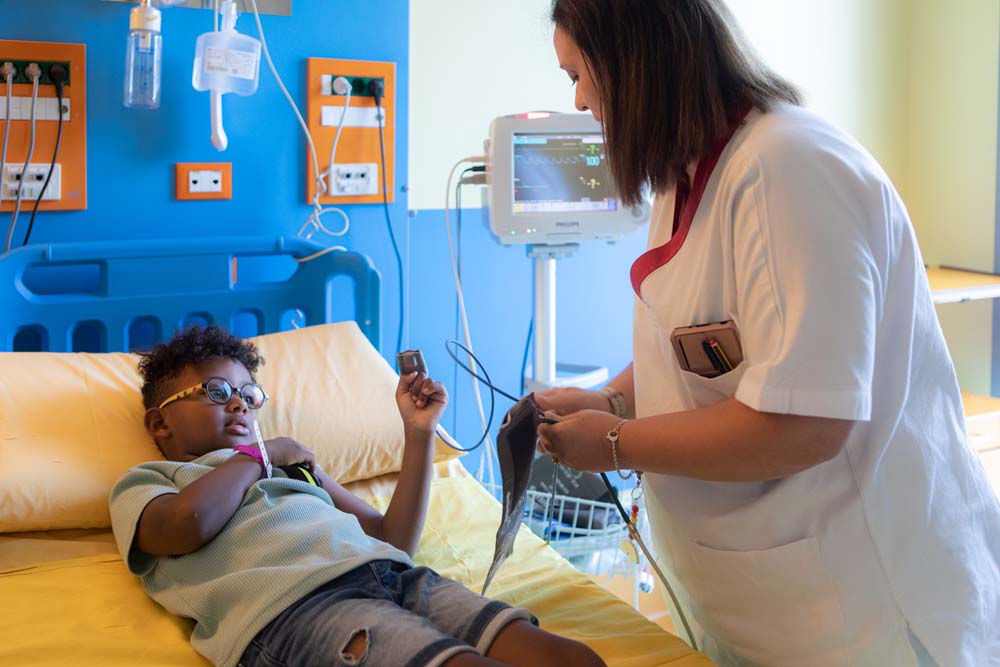An overview of treatments developed through Fondazione Telethon-financed research that have achieved authorisation.

Making therapies available to patients is fully consistent with Fondazione Telethon’s vision: transforming the results of research into accessible treatments. For us, scientific discovery is not the end point, but the beginning of a journey that only achieves its purpose once patients can truly benefit.
To achieve this, we adopt different operational models depending on the context:
- Partnerships with pharmaceutical companies, when industry engagement ensures the resources and expertise needed to bring a therapy to market.
- Direct production and distribution by Fondazione Telethon, in cases where companies discontinue development for reasons unrelated to scientific or clinical value, to guarantee continuity of access for patients.
- Independent regulatory development, when necessary, to take promising therapies all the way through the authorization process in Europe and beyond.
Through these models, we have already succeeded in making some of the world’s first gene therapies available, offering new options to patients with otherwise untreatable rare diseases.
Adenosine deaminease deficiency (ADA-SCID)
A severe immunodeficiency caused by adenosine deaminase (ADA) deficiency, leaving children defenseless against infections and typically fatal without curative treatment. Hematopoietic stem cell transplantation is the standard option, but many patients lack a suitable donor. The gene therapy developed at SR-Tiget was the first ex vivo gene therapy approved in the Europan Union (EMA, 2016) for patients without an eligible donor. It uses the patient’s own haematopoietic stem cells, genetically modified to restore ADA activity, enabling immune reconstitution.
In 2023 Fondazione Telethon took over from Orchard Therapeutics the marketing authorization, manufacturing, and distribution of the product, becoming the first non-profit worldwide to directly manage an authorized advanced therapy.
For more information, see the dedicated section on EMA website
Wiskott-Aldrich Syndrome (WAS)
A rare X-linked immunodeficiency caused by mutations in the WAS gene. It presents in early childhood with recurrent infections, eczema, bleeding, autoimmunity, and increased risk of lymphoma. The only potentially curative option is hematopoietic stem cell transplantation, for which a compatible donor is not always available, and which is not without risks. An ex vivo lentiviral gene therapy has been developed at SR-Tiget. In cases where transplantation from a compatible family donor is not feasible, gene therapy represents a potential therapeutic option for eligible patients.
In 2024 Fondazione Telethon announced its commitment to make this gene therapy available to patients. In 2025 Fondazione Telethon has received both FDA approval and CHMP positive opinion, followed by EU decision at the beginning of 2026. For more information, see the dedicated sections on FDA website and EMA website.
Metachromatic Leukodystrophy (MLD)
A rare, inherited neurodegenerative disease caused by deficiency of the enzyme ARSA, leading to rapid and irreversible loss of motor and cognitive functions, often resulting in death within a few years from onset. At SR-Tiget, Fondazione Telethon researchers developed an ex vivo gene therapy that modifies a patient’s hematopoietic stem cells to produce functional ARSA enzyme.
Initially developed at SR-Tiget, the therapy has been licensed to Orchard Therapeutics. It has been approved by the European Commission in 2020: for more information, see the dedicated section on EMA website.
In 2024 this gene therapy has been approved also by the FDA in the United States: for more information, see the dedicated website for US citizens.
Because early intervention is key, newborn screening is crucial to identify affected children in time for treatment.